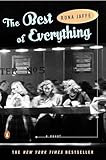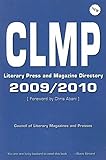 Brian writes in with this question:
Brian writes in with this question:
What I’d like to ask you is if you have any reading suggestions for finding out about the ins and outs of book and magazine publishing. It’s one of those topics that is absolutely flooded up to the nose with books claiming to answer all your questions. I would love some help from a trusted name. I’m trying to get a foot in the door in NYC but it is, as I’m sure you know, quite the challenge.
For this question we got responses from a pair of The Millions’ published writers, Emily St. John Mandel and Sonya Chung.
Emily: The most practical guide in my possession is probably Publicize Your Book! by Jacqueline Deval. At first glance this might not seem like the most intuitive fit for this topic, but the book provides a great deal of information about how publishing houses actually work from a marketing perspective, from the faintly chilling opening line (“The reality of book publishing is that there are too few resources to support every book”) onward. I happen to be published by a press that provides excellent marketing support to its authors, but this is by no means a given; I have friends, published by other presses, whose books have languished and died in the absence of a publicity budget. In the best-case scenario, authors need to play a substantial role in marketing their work, and in the worst-case scenario, they need to do absolutely everything themselves. Either way, Deval’s book is invaluable.
 There was a brief period last year when it seemed like half the people I follow on Twitter were reading Rona Jaffe’s The Best of Everything. I follow a lot of booksellers on Twitter, which is deadly, because I end up spending a small fortune on books; someone will recommend a book, then someone else will read it and recommend it too, and then all of a sudden everyone’s talking about it and I have to go buy it to see what all the fuss is about. Usually this happens with new releases, but The Best of Everything was published in 1958.
There was a brief period last year when it seemed like half the people I follow on Twitter were reading Rona Jaffe’s The Best of Everything. I follow a lot of booksellers on Twitter, which is deadly, because I end up spending a small fortune on books; someone will recommend a book, then someone else will read it and recommend it too, and then all of a sudden everyone’s talking about it and I have to go buy it to see what all the fuss is about. Usually this happens with new releases, but The Best of Everything was published in 1958.
This is a portrait of a lost world—the book follows five young employees of a Manhattan publishing house in an era of typing pools and three-martini lunches. It’s a novel, but one rooted in fact: the author spent four years rising through the ranks of a New York publishing house herself, and before writing the book she interviewed fifty young women to see if their experiences matched her own. The book’s account of what it took for a young woman to go from the typing pool to an editorial position in that era is not for the faint of heart. A friend who read this book told me that working in publishing hasn’t changed very much; I hope very fervently that she’s wrong.
 Sonya: In the olden days, we’d all go out and buy the Council of Literary Magazines and Presses (CLMP) Literary Press and Magazine Directory. Organized by state, with each entry detailing submissions policies and a sampling of the authors featured, it was considered the “Bible” of literary submission; we’d all pore over it and make our lists, noting deadlines in our daily planners, imagining that if we just did our due diligence we’d be published writers for sure. (In fact, I did publish my first stories and essays via lists I made from the LPMD.) CLMP still publishes the Directory annually, and it boasts new features such as tips from editors, profiles of publishers, and inclusion of “leading webzines.” I don’t hear young writers talking about this Directory as much as they used to – a print directory? how quaint! – but if you’re looking for a print resource, this might be The One.
Sonya: In the olden days, we’d all go out and buy the Council of Literary Magazines and Presses (CLMP) Literary Press and Magazine Directory. Organized by state, with each entry detailing submissions policies and a sampling of the authors featured, it was considered the “Bible” of literary submission; we’d all pore over it and make our lists, noting deadlines in our daily planners, imagining that if we just did our due diligence we’d be published writers for sure. (In fact, I did publish my first stories and essays via lists I made from the LPMD.) CLMP still publishes the Directory annually, and it boasts new features such as tips from editors, profiles of publishers, and inclusion of “leading webzines.” I don’t hear young writers talking about this Directory as much as they used to – a print directory? how quaint! – but if you’re looking for a print resource, this might be The One.
Poets & Writers is an indispensable clearinghouse for all things writerly, publishing and otherwise. Their website features user-friendly, searchable literary-magazine and small-press databases, grants/awards deadlines, and contests. I’ve found their Agents & Editors series – where a roundtable of agents and/or editors talk book biz “unplugged,” or an individual agent or editor is interviewed – especially illuminating.
When I had a book length manuscript and was ready to start the agent search, I found agentquery.com and publishersmarketplace.com both very helpful. I knew nothing about finding an agent; agentquery walks you through the basics of seeking an agent and FAQs of what to expect. Both sites have searchable databases with profiles on many agents (a quick look reveals that publishersmarketplace.com has more up-to-date profiles). The best strategy for agent-seeking is to make a list of your favorite writers, then go to a library or big-box bookstore, pull those writers’ books off the shelves and flip to the acknowledgments page; usually the writer will thank/name her agent there. Take your list of agents to one of these online databases, find their submissions guidelines, and follow them to a tee.
Finally, invest some time online. Literary blogs lead you to other literary blogs, which also inevitably lead you to online lit mags that will interest you and be good potential publishers of your work (many of the major lit bloggers list extensive links which include their favorite lit mags). It is a truism, for good reason, that the best places to submit your work are sites/publications that you read regularly and admire. Editors can sense, I think, that intangible quality of “good fit” when you’ve actually been reading their publication over time.
With so many online venues these days, the possibilities for publication have increased exponentially. Writing students sometimes ask me if I think online pubs are “less prestigious” than print pubs, to which I say, hogwash: The Millions, Narrative Magazine, Five Chapters, on and on. But, as Stephen Elliott puts it: “It’s easy to get published; it’s just hard to get paid.”
Good luck!
Thans for the question Brian! Millions readers, feel free to chime in with your advice in the comments!
[Image credit: Jim Kuhn]








